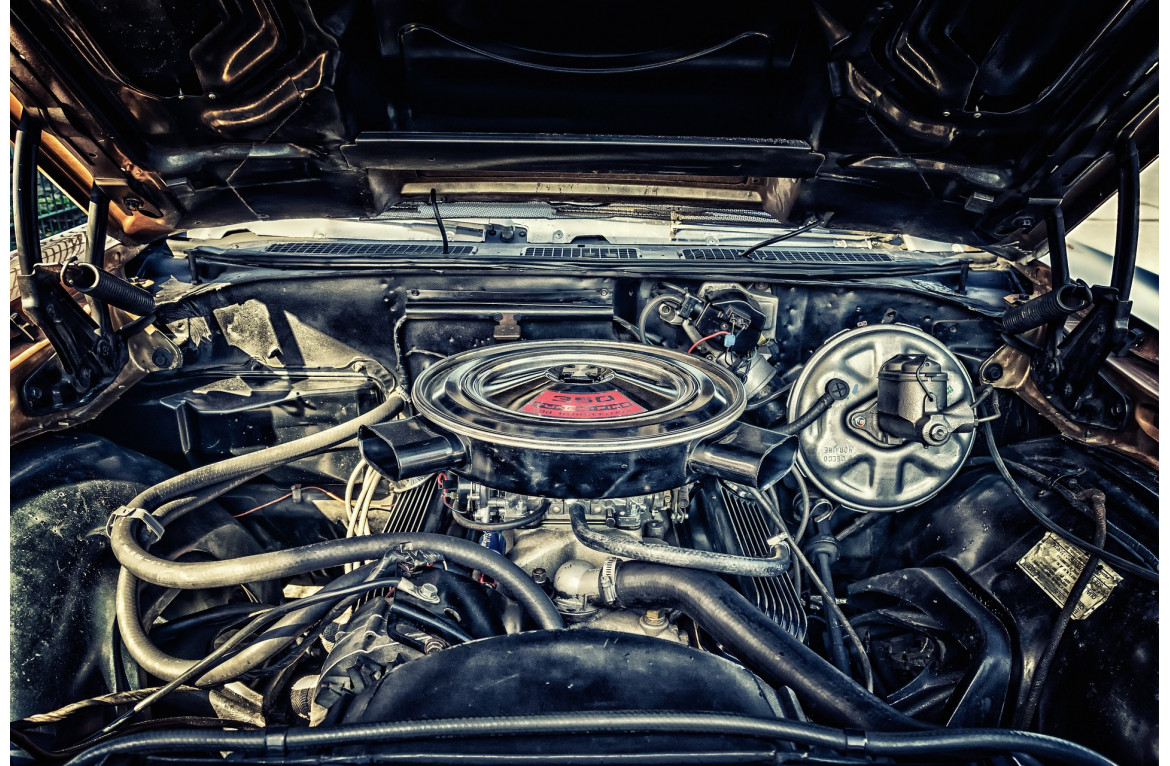
Car Filters: Basic Information and Selection
Types of Car Filters
In this section, we will explore the different types of car filters and their functions.
Air Filters
Air filters prevent dust, dirt, and other contaminants from entering your engine, ensuring optimal combustion and fuel efficiency. They need to be replaced regularly to maintain engine performance and prevent wear.
Changing Air Filters
Over time, air filters can become clogged with debris, reducing airflow and engine efficiency. It is essential to replace air filters as recommended by the manufacturer or when performance issues arise.
How to Choose an Air Filter
When selecting an air filter, consider factors such as vehicle compatibility, filter material, and brand reputation. Quality filters from reputable manufacturers, such as Bosch, MANN-FILTER, and K&N, ensure optimal engine performance.
Oil Filters
Oil filters clean engine oil by trapping particles and contaminants, preventing engine wear and extending its lifespan. A clogged oil filter can result in poor engine performance and potential damage.
Changing Oil Filters
Regular oil filter changes are necessary to maintain engine health. Follow the manufacturer's recommendations for oil and filter change intervals, typically every 3,000 to 5,000 miles.
How to Choose an Oil Filter
Factors to consider when selecting an oil filter include compatibility with your vehicle, filtration efficiency, and brand reputation. Quality filters from reputable manufacturers, such as Bosch, MANN-FILTER, and K&N, ensure optimal engine performance and longevity.
Fuel Filters
Fuel filters remove contaminants from fuel before it reaches the engine, ensuring optimal combustion and fuel efficiency. A clogged fuel filter can lead to poor engine performance and potential damage.
Changing Fuel Filters
Replacing fuel filters at regular intervals is crucial for maintaining engine health. Follow the manufacturer's recommendations for fuel filter change intervals, typically every 15,000 to 30,000 miles.
How to Choose a Fuel Filter
When selecting a fuel filter, consider factors such as vehicle compatibility, filtration efficiency, and brand reputation. Quality filters from reputable manufacturers, such as Bosch, MANN-FILTER, and K&N, ensure optimal engine performance and fuel efficiency.
Cabin Filters
Cabin filters clean the air entering the vehicle's interior, removing dust, pollen, and other contaminants. They help maintain a healthy and comfortable cabin environment.
Changing Cabin Filters
Regular cabin filter changes are essential for maintaining good air quality inside your vehicle. Follow the manufacturer's recommendations for cabin filter change intervals, typically every 12,000 to 15,000 miles.
How to Choose a Cabin Filter
When selecting a cabin filter, consider factors such as vehicle compatibility, filtration efficiency, and brand reputation. Quality filters from reputable manufacturers, such as Bosch, MANN-FILTER, and K&N, ensure a clean and comfortable cabin environment.
Car Filter Manufacturers
In this section, we will discuss some of the top car filter manufacturers and their product offerings.
Bosch
Bosch is a leading automotive parts manufacturer, known for its high-quality filters
Bosch Air Filters
Bosch offers a range of air filters designed to provide optimal engine performance and protect against contaminants. These filters are made with high-quality materials and meet or exceed OEM specifications.
Bosch Oil Filters
Bosch oil filters are designed to remove contaminants from engine oil and ensure optimal engine performance. They feature a high filtration efficiency and are built to last for the recommended oil change interval.
MANN-FILTER
MANN-FILTER is a well-known manufacturer of automotive filters, offering a wide range of products for various vehicle makes and models.
MANN-FILTER Air Filters
MANN-FILTER air filters are designed to provide optimal engine performance by preventing contaminants from entering the engine. They are made with high-quality materials and meet or exceed OEM specifications.
MANN-FILTER Oil Filters
MANN-FILTER oil filters are designed to remove contaminants from engine oil, ensuring optimal engine performance and longevity. They feature a high filtration efficiency and are built to last for the recommended oil change interval.
K&N
K&N is a popular automotive filter manufacturer, known for its high-performance air and oil filters.
K&N Air Filters
K&N offers a range of high-performance air filters designed to provide better airflow and engine performance. These filters are washable and reusable, providing a cost-effective and environmentally friendly option for vehicle owners.
K&N Oil Filters
K&N oil filters are designed to provide optimal engine performance by removing contaminants from engine oil. They feature a high filtration efficiency and are built to last for the recommended oil change interval.
Car Filter Maintenance and Care Tips
In this section, we will provide tips on how to check, maintain, and replace your car filters.
How to Check the Condition of Filters
Regularly inspecting your filters can help ensure optimal vehicle performance and prevent potential issues.
Checking Air Filters
Inspect your air filter for debris and damage. If it appears dirty or clogged, consider replacing it to maintain proper engine performance.
Checking Oil Filters
While it's difficult to visually inspect an oil filter, monitor your oil change intervals and replace the filter according to the manufacturer's recommendations.
Checking Fuel Filters
Fuel filter inspection may require professional assistance, as it can be difficult to access. However, be sure to follow the manufacturer's recommendations for replacement intervals.
Checking Cabin Filters
Inspect your cabin filter for debris and damage. If it appears dirty or clogged, consider replacing it to maintain good air quality inside the vehicle.
How to Replace Filters Yourself
With some basic knowledge and tools, you can replace many of your vehicle's filters yourself.
DIY Air Filter Replacement
Replacing an air filter typically involves removing the old filter from the airbox and inserting a new one. Consult your owner's manual for specific instructions.
DIY Oil Filter Replacement
Changing an oil filter usually coincides with an oil change. After draining the old oil, remove the old filter, lubricate the new filter's gasket, and install the new filter. Consult your owner's manual for specific instructions and torque specifications.
DIY Fuel Filter Replacement
Replacing a fuel filter can be more complex and may require specific tools. Locate the filter, relieve fuel pressure, and carefully remove and replace the filter. Consult your owner's manual for specific instructions and safety precautions.
DIY Cabin Filter Replacement
Cabin filter replacement usually involves accessing the filter behind the glove compartment or under the dashboard. Remove the old filter and insert the new one, ensuring proper orientation. Consult your owner's manual for specific instructions.
Recommended Filter Replacement Intervals
Follow the manufacturer's recommendations for filter replacement intervals to maintain optimal vehicle performance.
Air Filter Replacement Recommendations
Typically, air filters should be replaced every 12,000 to 15,000 miles. However, consult your owner's manual for your specific vehicle's recommendations.
Oil Filter Replacement Recommendations
Oil filters should generally be replaced with every oil change, which usually occurs every 3,000 to 5,000 miles. Consult your owner's manual for your specific vehicle's recommendations.
Fuel Filter Replacement Recommendations
Fuel filters should typically be replaced every 15,000 to 30,000 miles. However, consult your owner's manual for your specific vehicle's recommendations.
Cabin Filter Replacement Recommendations
Cabin filters should generally be replaced every 12,000 to 15,000 miles. Consult your owner's manual for your specific vehicle's recommendations.
Frequently Asked Questions About Car Filters
In this section, we will address common questions related to car filters.
What are the signs that filters need to be replaced?
Some signs that your filters may need replacement include reduced engine performance, decreased fuel efficiency, unusual engine noises, or poor air quality inside the vehicle.
Which is better: original or aftermarket filters?
Both original and aftermarket filters can provide excellent performance, depending on the manufacturer. It is essential to choose filters from reputable brands to ensure quality and reliability.
Does filter quality affect engine life?
Yes, using high-quality filters can significantly impact your engine's lifespan by providing better protection against contaminants and wear.
Should you save money on filters or choose expensive ones?
Investing in high-quality filters from reputable manufacturers can provide long-term benefits, such as better engine performance and longer engine life. While it may be tempting to save money on cheaper filters, it is essential to consider the potential long-term costs of reduced engine performance and potential damage.




All comments